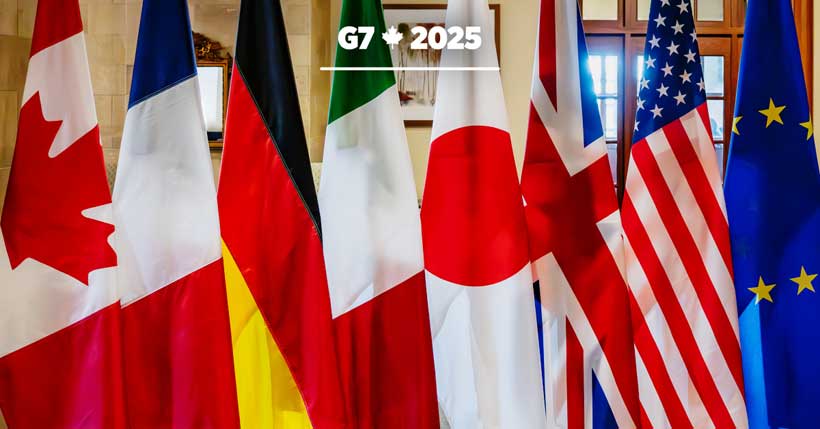As Canada hosts the G7 Summit in Kananaskis, Alberta, from June 15 to 17, 2025, an orchestra of economic collapse plays across free economies like Canada, the United States, and the European Union. The conductor is not war or scarcity but a silent plague: Anti-Job Creation Syndrome, fueled by a job-seeker mindset where individuals, driven by a quest for stability, prioritize secure careers over the daring act of building enterprises.
Job creators, those rare alchemists who forge businesses from dreams, are the antidote, yet they are stifled by a culture that clings to caution. Canada’s G7 presidency must spark a global shift toward job-creating prosperity or risk a financial collapse that reverberates across continents.
The spark of entrepreneurial mysticism—a primal force weaving prosperity from village squares to global markets—has long defined human progress. From the wheel’s invention to Steve Jobs’ digital revolution, this unexplainable drive has birthed enterprises, from humble workshops to towering giants.
In Canada, small and medium-sized enterprises account for 50% of GDP, yet too many falter under job-seeker policies that favor bureaucracy over risk. In contrast, China’s job creators drive 60% of GDP; their billion entrepreneurs are a symphony of innovation. Canada’s G7 stage must champion this mysticism to counter the syndrome’s chokehold, lest free economies fade into a dissonant fog.
Free economies suffer because 99% of their economic teams are job seekers, trained to support enterprises, not start them. Job creators, wielding tacit knowledge—the intuitive brilliance of innovation—face a world that prizes explicit skills like accounting or law. Canada’s education system, like its G7 peers, churns out resume-builders, not enterprise-builders, leaving small businesses to wither.
Across the European Union, 50% of small enterprises have closed since 2020, while India’s multi-million startups thrive on risk-taking. This divide fuels the Anti-Job Creation Syndrome, where job seekers caution against starving the entrepreneurial flame. Canada must lead the G7 in nurturing job creators, not coddling job seekers.
The global economy splits into abstract and real realms. Abstract economies, like those of Canada and the United States, indulge in financial games—stock manipulations and debt bubbles—while real economies, grounded in value creation, flourish in job-creator nations.
Canada’s enterprises, burdened by $1.3 trillion in national debt, struggle in this abstract haze, unable to match China’s relentless advance. G7 elections, despite bold promises, fail to launch grassroots prosperity, blinded by job-seeker policies. The summit’s focus on digital resilience and climate change risks missing the primal need for enterprise creation. Canada’s leadership must shift this narrative to real economies, where job creators forge lasting wealth.
Canada’s G7 presidency is a clarion call to host a global summit, uniting nations to forge strategies for real economies rooted in value creation. The absence of bold economic debates to address declining productivity demands this reckoning. When 99% of economic teams lack the spark to grow small and medium-sized enterprises, the damage is profound.
How long will Canada’s enterprises languish in debt’s shadow? A summit could draw lessons from job-creator nations, rekindling the entrepreneurial mysticism embedded in every community.
Five steps chart the path: promote entrepreneurial education to inspire job-creators; incentivize small and medium-sized enterprises with tax breaks; invest in training that blends tacit and explicit knowledge; foster public-private partnerships to break dependency; and convene a summit to share value-driven strategies.
The world watches as Canada stands at Kananaskis, its G7 baton poised to conduct a new symphony. Free economies teeter on collapse, their job-seeker mindset a weary colossus crumbling under caution.
Why is Expothon Worldwide gaining global attention? An international platform for entrepreneurial innovation and authority on National Mobilization of SME protocols, now so focused on 100 countries. Why is it challenging to use immediately deployable methodologies for all massive SME sectors within the GCC, OIC, European Union, African Union, Commonwealth, BRICS, and ASEAN for national mobilization of entrepreneurialism as pragmatic solutions? Over the last decade, these insights have been shared weekly and reached approximately 2000 selected VIP recipients at the National Cabinet-Level senior government officials across 100 free economies. This track record of expertise and trust forms the foundation of its proposed strategies.
Population-rich nations like India and China play a vibrant melody; their billion entrepreneurs are a testament to the reward of risk. Canada must lead the G7 in unleashing job creators, not job seekers, by forging enterprises that light up the global stage. Free economies and G& have some bigger challenges, like facing the anti-job creation syndrome.
Without this mega-shift, the old economic model risks a grand financial collapse, leaving free economies in darkness. Canada’s summit is the last stand to ensure job-creators triumph, creating a future of prosperity for all.
The rest is easy.
